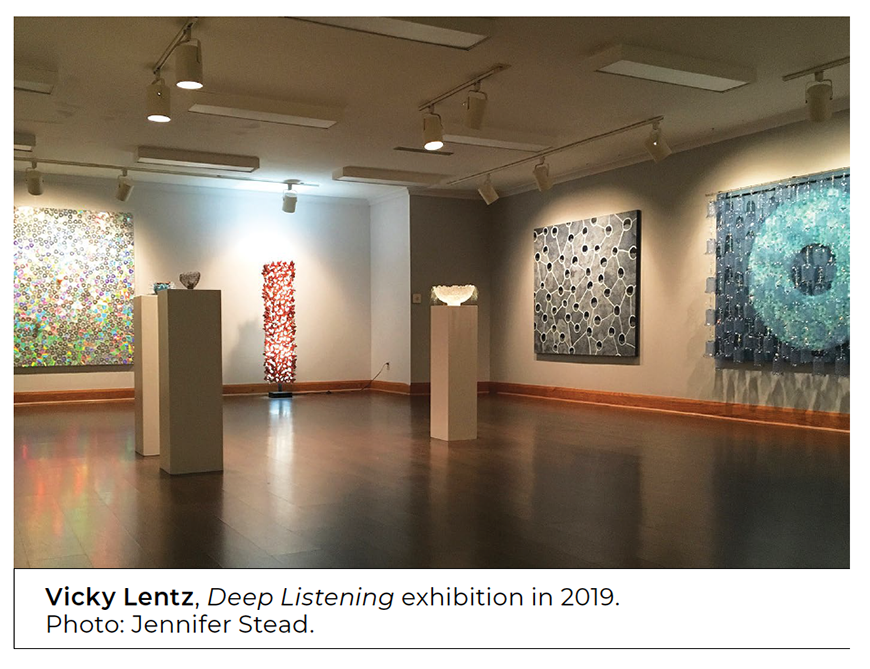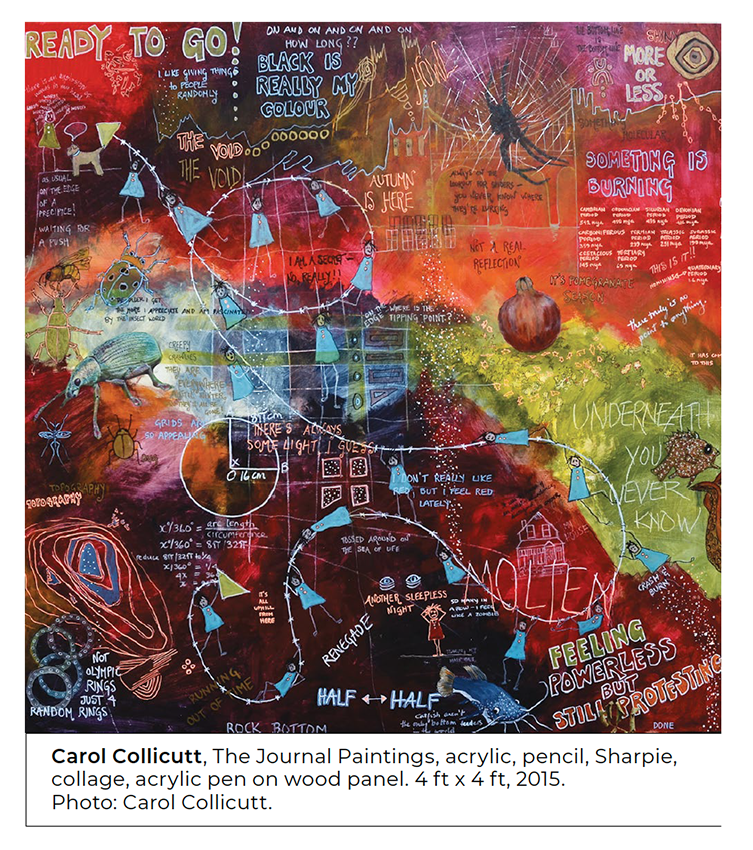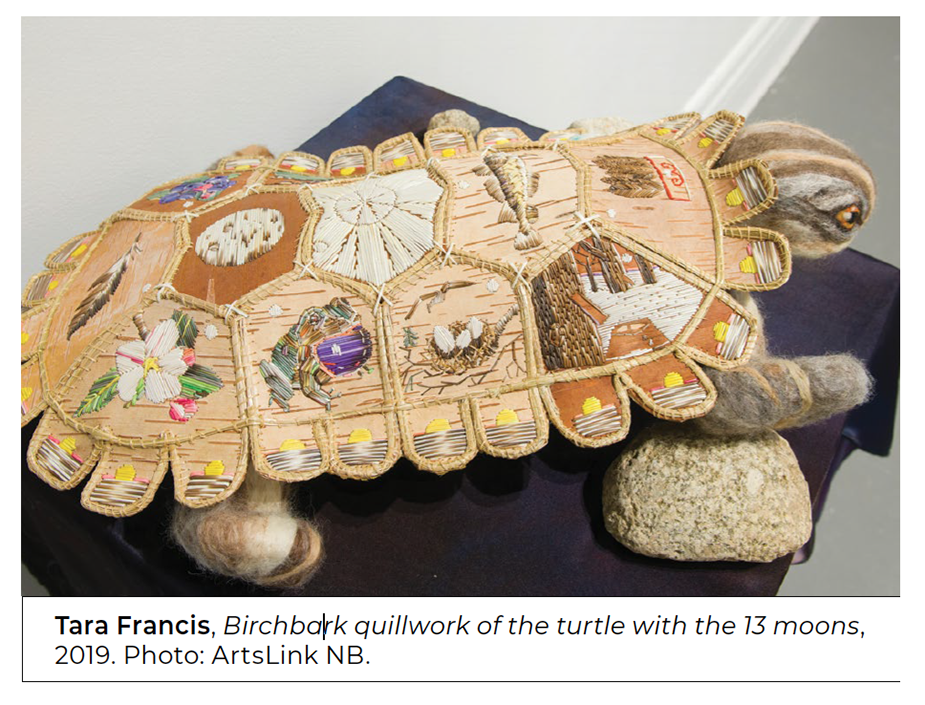
In 2014, the provincial government committed to recognizing and supporting the valuable contributions made by professional artists to provincial prosperity, to increasing their educational opportunities, and to examining and improving the working conditions and the economic and legal status of the artist.
Recognizing that “Artists contribute a great deal to New Brunswick’s quality of life, economy and to the strength of the cultural fabric of our communities,” then-Premier David Alward established the Task Force to examine the issues and make recommendations on measures or legislation that would improve the socio-economic status of professional New Brunswick artists.
Artists are the driving force behind a cultural industry that contributed over $572 million to our provincial GDP in 2018, yet their median annual income remains below that of other workers. In 2016, the median individual income of Canadian artists was $24,300, compared to $43,500 for all workers. The problem is rooted in the fact that most artists are self-employed, with atypical work patterns characterized by intermittent or cyclical periods of activity. As a result, they are often not well served by existing federal and provincial government policies and programs. New Brunswick has no legislation to protect or advance the status of professional artists. By addressing those policy and program gaps and helping professional artists earn a reasonable income, our province will increase its cultural capital, improve its economy, and create a better place for all New Brunswickers to live.
By addressing those policy and program gaps and helping professional artists earn a reasonable income, our province will increase its cultural capital, improve its economy, and create a better place for all New Brunswickers to live.

The Task Force has conducted extensive research into models of taxation, remuneration, and labour legislation and how new strategies and best practices can mitigate the barriers and disadvantages to arts professionals.
This report offers 24 recommendations for actions and continued study aimed at improving the working conditions of New Brunswick’s professional artists and enabling them to earn a living from practising their art.
The recommendations include:
- developing legislation on the status of the artist with a definition of professional artist
- recognizing invisible work
- taxation reform
- copyright legislation reform
- pension and EI reform
As well as:
- resale rights for visual artists
- mandatory written contracts
- minimum fee scales
- funding for arts programs in schools
- hiring New Brunswick artists first
- exploring guaranteed annual income programs
The first step toward implementing these recommendations is to establish a transition committee on the status of the artist comprised of diverse representatives of the arts community and of the departments associated with the recommendations.
As with other self-employed workers, many government services or programs are not accessible to professional artists.

Professional artists regularly engage in invisible work for which they are not paid but which is essential to artistic production.
This includes preparation, training, research, networking, and mentoring, as well as the dissemination and promotion of the work which is essential for sales and income.
The arts are essential to any vibrant community, yet artists’ work and time are frequently taken for granted. Despite their higher-than-average education levels, artists in New Brunswick earn 56% less employment income than the general provincial workforce: $15,000 compared to $33,700 (based on the 2016 census). If we want to consume art, experience it, and be nourished culturally, professional artists must be supported by a public policy framework that ensures they have the means to create. While they are the primary engine of our province’s cultural and creative industries, the vast majority of artists do not make a living solely from their art but instead cobble their income together through multiple jobs, whether artistic, arts-adjacent, or unrelated.
The catastrophic pandemic that erupted in 2020 has further highlighted the financial precariousness of many artists and arts professionals and the crucial importance of their contribution to our personal and collective well-being. Our society can count on the resilience of artists and their inherent adaptability, but their basic needs must be met. The social justice issues raised by the pandemic are consistent with the findings of this report.

Enacting legislation on the status of the professional artist will allow our province to show leadership in addressing these issues. In response to measures recommended by UNESCO in 1986, the federal government created a Task Force on the Status of the Artist and passed the 1992 Status of the Artist Act, which recognizes the economic, social, and cultural contribution of artists to Canadian society. To date, five provinces have created legislation recognizing the role of artists in society and affirming their right to receive fair compensation for their work. We have the opportunity to create a legislative framework that will yield tangible results.
The Task Force recognizes the many issues facing professional artists in New Brunswick and elsewhere in the country. We believe that our recommendations will enable the provincial government to lead change in collaboration with the federal government that will benefit artists, have positive economic and social spinoffs and provide a model for other jurisdictions.
Tabling this report is a historic milestone for the Premier’s Task Force on the Status of the Artist. New Brunswick’s professional artists look to their government to play a leadership role at the national level. Going forward, artists’ associations, government, and other partners must ensure that our recommendations are implemented for positive change based on strong collaboration. We look forward to supporting that effort. We sincerely hope the Government of New Brunswick will embrace this perspective and that together we will work to improve the socio-economic situation of professional artists, allowing them to enjoy greater quality of life and to contribute robustly to the economic success of the province.
